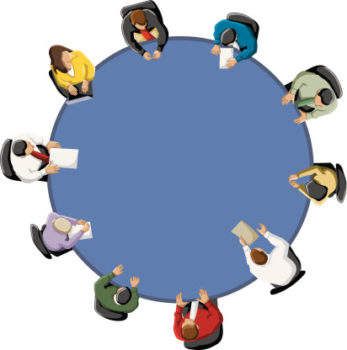
We are familiar with the Greek concept of chronos, or chronological time, of which we too often lament there is not enough. Perhaps we should embrace the other Greek concept of time: kairos, or the right time, the time when something remarkable is about to happen. I believe that now is the right time for higher education to distinguish itself by becoming, from its leadership to its staff and students, a laboratory for learning.
To date, probably because chronological time has compelled us to attend to the daily activities of the academy, higher education has been unable to realize the potential of a laboratory approach across campuses. Taking advantage now of these crucial missed opportunities—the cognitive and social growth of our students and the imaginative pedagogical strategies that accompany such an engaged teaching standpoint—can alter in the most positive way both how education happens and how an institution operates. Higher education can apply a laboratory approach to everything that is undertaken inside and outside the classroom. We can experiment, reflect and write about what we do institutionally and in our living and learning communities. We can encourage imagination and problem-solving. We can even recognize the cost-benefit importance of utilizing students as resources and of interdisciplinary as well as interprofessional programming.
To be fair, higher education has attempted some of this in fits and spurts across the country. Sadly, though, the truly rich idea of laboratory learning (i.e., praxis, or connecting theory to practice) has ended up becoming associated with remediation. So we need an architecture that explains our approach, guides our decisions, informs our teaching and pedagogy, and articulates a vision for campus life. Laboratory teaching and learning should become the staple for higher education. If successful, we will have found a way of reaching a wide range of students and credentialing individuals prepared as thoughtful, engaged leaders.
To extrapolate from Northeastern University Neal Lerner’s The Idea of a Writing Laboratory, laboratories are alternatives to lectures and “recitation”—they are a clarion call for hands-on learning and social interaction among students with each other and collectively among faculty and staff and students. As Lerner and others have noted, the early and recent proponents of the laboratory approach to science and the early supporters of the laboratory approach to teaching writing offer a challenge for educators: take the best of laboratory learning and extend it to all disciplines—now and in the future. We should think about laboratories in healthcare, in the liberal arts, physical sciences and social sciences, in fitness, in business. In a nutshell, laboratory education, at its best, involves teaching and learning “as an experiment in possibility,” to use Lerner’s terminology.
Laboratories are places where risk-taking occurs, where mistakes can be made safely, where learning from errors is encouraged (indeed fostered), where getting it right the first time is less important than learning while doing over time, and where eventually a helpful theory is tested for the benefit of all members of the community. The central notion of experimentation inherent in the idea of a laboratory can offer all learners and teachers the opportunity to initiate, not just a common and sustainable pedagogical orientation within the academy, but profound educational reform that will surely address the academy’s affordability issues, including costs, access and learner progress without debt.
A laboratory model will adjust what happens in class, the nature of coverage, and the approach to grading. It alters teacher and student preparation; it changes our approach to learning. It suggests ways of shaping residential and commuter lifestyles. It offers repeated opportunities for reflection. It alters expectations. The outcomes generated by laboratory learning are supported by associations like the Association of American Colleges and Universities (AAC&U), which calls for inquiry, experimentation, and cross-disciplinary alliances.
Making colleges and universities laboratories of lifelong learning that espouse contemplation, collaboration, community and communication can help us to confront three critical issues in higher education: 1) the so-called crises in literacy and technical proficiency; 2) the lack of resources which complicates (and sometimes thwarts) innovation and experimentation; and 3) the inability to realize the imaginative possibilities that rest within a diverse student population, most particularly those who have social, economic or class differences, and the challenges of making progression through college both possible and relevant for first-generation students, career-changers, and other nontraditional learners.
The question is not whether laboratory learning makes sense. Instead, the question is whether we are courageous enough to embrace a different approach to learning and make laboratory learning the central piece of our higher education model—and to employ the principles of the laboratory across the curriculum and across the nation. All that impedes us is our willingness to try. We should get ready, to “don those white coats and safety glasses and discover what works” in order to affirm that “teaching [is] a way of offering meaning-making opportunities for students no matter the subject matter,” as Lerner noted. It is a risk well worth taking for, as some have observed about the laboratory approach to learning in disciplines such as writing, the idea promotes “possibility” and “productive chaos.”
Laboratory learning, within and outside the classroom, provides a frame for the good work of higher education. If we act now, if we accept the concept of kairos, we will do more than help our current students. We will be sustaining higher education for the future. We will be a laboratory experiment that works–for students, for faculty, for staff, and in the larger higher education community.
Albert DeCiccio has been vice president of academic affairs at Labouré College since February 2014. Previously he was provost at Southern Vermont College and academic dean and professor of English at Rivier College. He is past president of the International Writing Centers Association.
[ssba]
